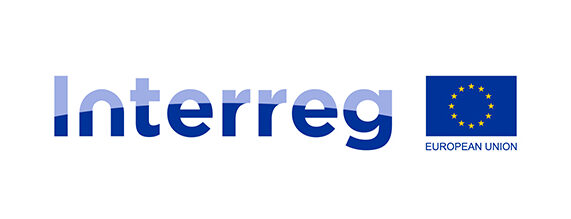Objectives and goals of the funding programme
As part of the EU’s Cohesion Policy, Interreg plays a vital role in promoting regional development, cohesion, and reducing economic disparities. For the 2021-2027 period, Interreg is focused on addressing current challenges like climate change, digital transformation, and social inclusion.
In 2021-2027 Interreg has two new specific objectives:
- Interreg Specific Objective (ISO) 1: A better Cooperation governance:
- To enhance the institutional capacity of public administrations;
- To resolve legal and administrative obstacles in border regions;
- To promote sustainable democracy;
- To strengthen mutual trust among citizens.
- Interreg Specific Objective (ISO) 2: A safer and more secure Europe
- For actions in the fields of border crossing management, mobility and migration management, including the protection and economic and social integration of third-country nationals;
- To support employment and labour market measures such as improving access to employment, encouraging life-long learning, promoting gender balance and fostering equal opportunities.
Type of Programme
Interreg
Funding type/type of support
Financing (Loans/Guarantees)
Organizational level
International
Programme Focus
Competitiveness, research and innovation, Skills, Smart / digital tourism, Sustainable tourism
Programme relevant for/ target group
Academic institutions, Natural persons (private individuals), SMEs and micro companies, VET Providers, Other
Geographic area
European Union
It has a budget of €10 billion.
Under the Interreg Europe programme, the project activities are co-financed by the Interreg Fund at either 70% or 80% depending on the legal status of the project partner.
Public or public equivalent bodies have an 80% co-financing rate while private not for profit bodies have a 70% co-financing rate.
The remaining 30% or 20% co-financing must be provided by the partners themselves and it may come from the partners’ own budget or from other sources.
Public authorities
- National, regional, local public authorities;
- Other relevant bodies responsible for developing and/ or implementing regional development policies;
- Authorities responsible for developing and/ or implementing the Investment for jobs and growth programmes.
Organisations relevant for regional development policies
- Business support organisations (development agencies, innovation agencies, chambers of commerce, clusters, etc.);
- Environmental organisations (environmental agencies, energy agencies, NGOs, etc.);
- Education and research institutions (universities, research centres, etc.).
- EU Programmes: 49 programmes within the EU focus on turning border obstacles into opportunities between EU Member States;
- Interreg IPA: 10 programmes operate at the EU’s border with IPA countries, mainly supporting the EU’s enlargement policy;
- Interreg NEXT: 5 programmes are implemented at the EU’s external eastern and southern borders. Four cross-border programmes encourage cooperation with Ukraine and Moldova.
- Transnational, Supporting Larger Scale Initiatives (13 programmes)
- Continuation: 13 transnational cooperation programmes will continue in supporting large-scale cooperation activities in Europe and beyond;
- Direct Support: 4 of them (Interreg Baltic Sea Region, Interreg Danube Region, Interreg IPA Adrion, and Interreg Alpine Space programme) will directly back Macro Regional Strategies covering their respective geographical areas. 80% of their thematic concentration should align with a Macro Regional Strategy.
- Interregional, Enhancing Cohesion Policy Effectiveness (4 programmes)
- Outermost Regions, the recognition (5 regions)
Cooperation has to be at the heart of each project. In order to be eligible, projects must contribute to at least three out of the following four cooperation criteria.
- Joint development (compulsory) – i.e. partners have to be involved in an integrated way in developing ideas, priorities and actions in the project development process;
- Joint implementation (compulsory) – i.e. project activities must be carried out by partners in a cooperative way that ensures clear content-based links and be coordinated by the lead partner;
- Joint financing (compulsory) – i.e. the joint project budget shall be organised in line with activities carried out by each project partner. The LP is responsible for the administration and reporting towards the programme bodies as well as the distribution of the funds to the partners;
- Joint staffing – i.e. the project should not duplicate functions within the partnership. In particular, project management functions should be appointed only once at project level.
Within the Interreg program, there is a project called MONA dedicated to tourism in nature areas in North-West Europe (NWE). Thus, MONA will stimulate sustainable tourism in and around nature areas in NWE, which benefits nature, the environment, visitors, and the local economy.
MONA will do so by encouraging a modal shift through facilitating sustainable transport modes, providing inclusive routing to and within nature areas, and nudging visitors and stakeholders towards more sustainable behavior. These are the key solutions to manage visitor flows, reduce negative impacts, and stimulate inclusive access.
8 nature areas and 3 knowledge & dissemination partners work together to:
- Assess the impact of visitors & mobility on nature areas and develop strategies to reduce this impact;
- Jointly pilot solutions on the modal shift, routing, and nudging;
- Provide capacity building for stakeholders across NWE Nature areas, destination marketing organizations, tourism & mobility service providers, local and regional authorities and (potential) visitors of nature areas all benefit from the strategies and solutions for, and revenues of, sustainable tourism.
MONA develops and promotes a mindset around sustainable tourism, which is balanced, inclusive, and socially and environmentally sustainable. This is made possible by the project’s multidisciplinary approach, for which the transnational partnership and expertise is essential.
